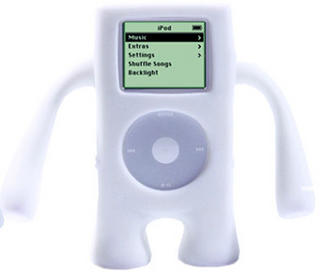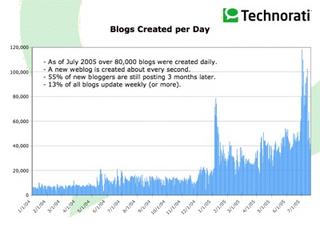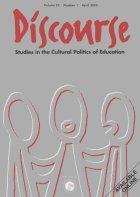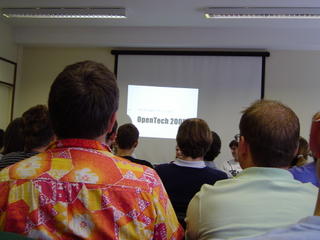I had an interesting conversation with a 12 year old boy today. We were discussing a planned shopping expedition -- previously one of his least favourite tasks. Today however, he seemed more enthused. He asked if he could buy a new shirt. This interest in fashion was intriguing in a boy who until the day before had shown scant interest in issues of personal style.
Yesterday: On a tourist outing to a neighbouring town, we had wandered into a local shopping area. When asked if there was anything he was interested in, he immediately identified a very funky pair of white casual sneakers with blue trim and various artistic strips of velcro--the very type of shoe he scoffed at only a few months earlier. The shoes were described as "deadly" and swiftly tried on and purchased. This incident was interesting but I associated it more with the sudden awakening of image-consciousness that goes with early adolescence. This view seemed confirmed with a follow up conversation about hair. He suggested that it was time for him to get a haircut and perhaps to do something interesting with the color. Black would be a cool color.
Today: Our conversation about shopping actually seemed to engage him but in a way I wasn't expecting. He suddenly wanted me to come with him to view his Sims character (X-BOX game). He had created a Sims avatar who wore baggy jeans, the exact shoes he had chosen yesterday and with jet black hair. The only difference was the avatar's long sleeved white fitted shirt. THIS was what he wanted to look for on our shopping trip. This seems more than the usual image-consciousness of blossoming adolescence.
My question: Is this 12 year old shopping to clone a Sims character or has he created an avator to reflect aspects of himself? If there's a difference, does it matter?
This episode raises, for me at least, interesting questions about identity projection and construction, gender and the potential of in-game characterizations as a space for building new and alternative identities which may (or not) be lifted into the world outside the game.
I think there are interesting discussions to be had here about the dynamic connection between identity construction and projection. It is one thing to construct identity, but like literacy, it's raison d'etre is to DO something which leads us to the importance of projection in relation to identity. The other aspect of these discussions and consequent shopping expeditions is the blurring of the line in the sand between in-game and out-of-game identity constructions and projections.
Interest in these issues can be seen emerging from quite different directions. Gonzalo Frasca from the Georgie Institute of Technology muses on
ludology.org about the potential of The Sims characterizations as a vehicle for dealing with ideological issues and social conflict. At the same time,
slashdot.org recently noted research efforts at USC and MIT to modify The Sims to provide language immersion environments for foreign language learning. A crucial aspect of the success of programs such as these would have to be the depth of identification with avatars/characters that players construct -- which leads me back to my story about the 12 year old and his Sims/self construction and projection.





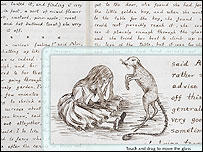



 and
and 


